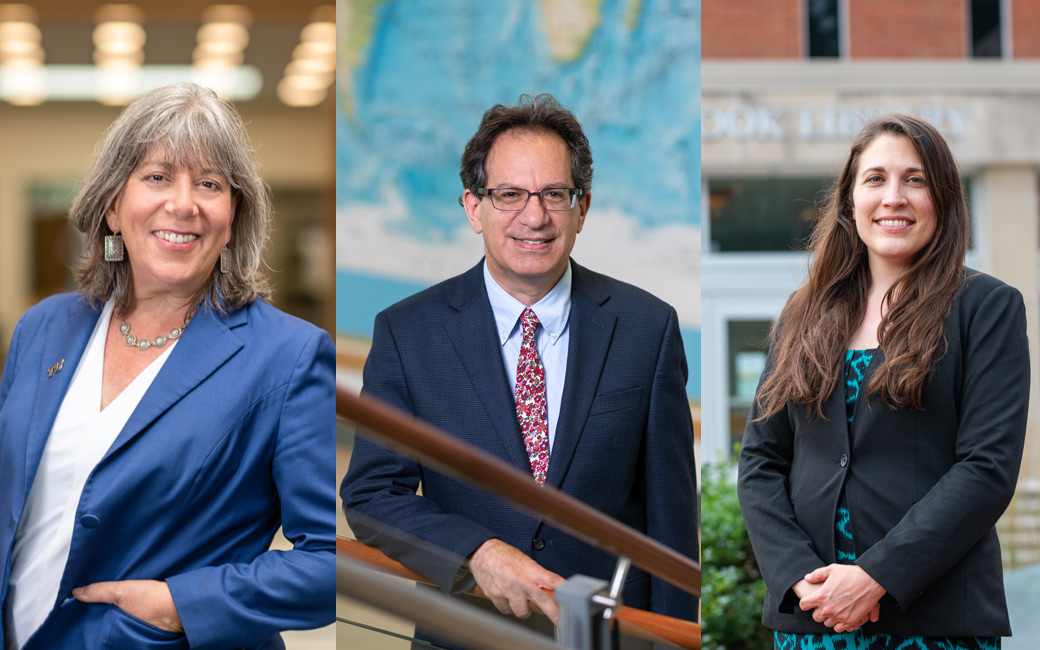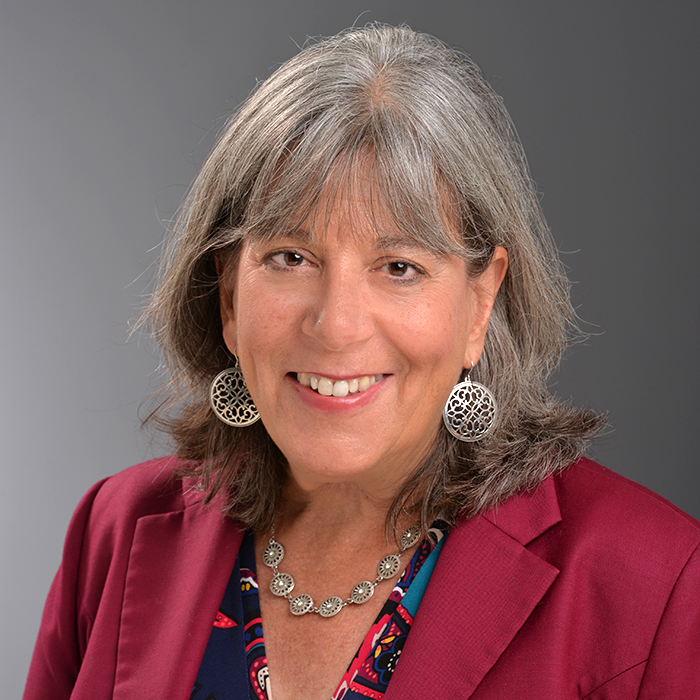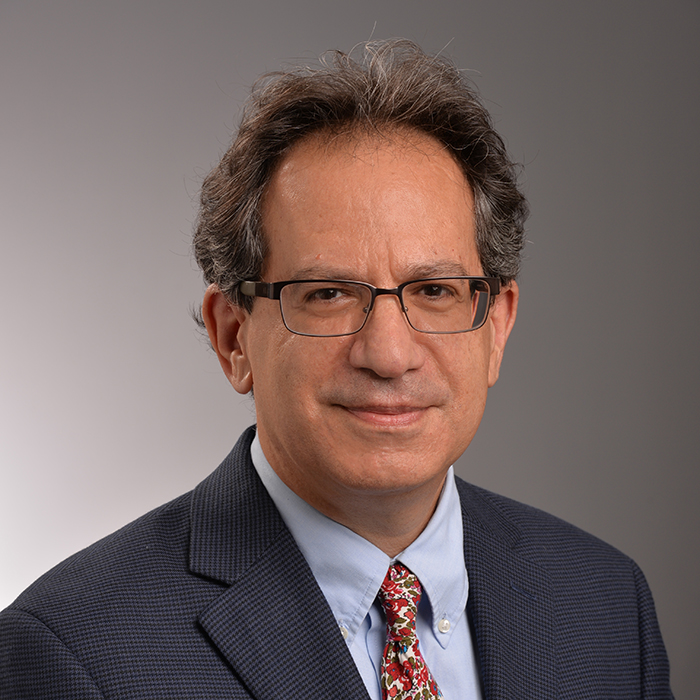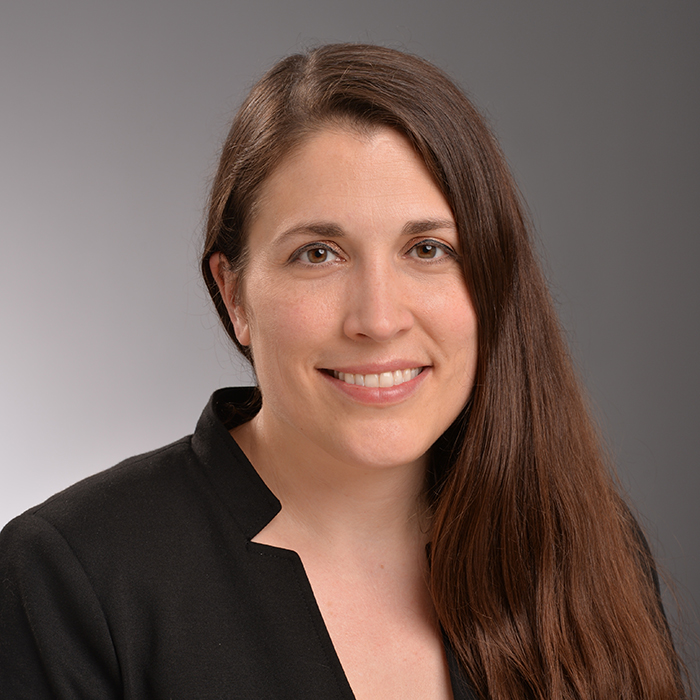Towson University welcomes three new deans
The College of Liberal Arts, College of Fine Arts & Communication, and University Libraries are all welcoming new deans this term
By Rebecca Kirkman & Cody Boteler on July 30, 2020

Towson University is proud to welcome three new deans to our campus community, who will bring their expertise and passion to Greater Baltimore's premier institution.
The College of Liberal Arts, the College of Fine Arts & Communication and University Libraries have all welcomed new deans over the summer.
"After extensive national searches for each of these dean positions, we are excited to have such a talented, innovative and dedicated group of leaders joining our academic team," says Provost and Executive Vice President for Academic & Student Affairs Melanie Perreault. "They join a terrific group of deans who have demonstrated the importance of outstanding leadership during these challenging times."
Meet the three deans who are now part of the Tiger community.
Regina Carlow, Dean of the College of Fine Arts & Communication
As a high school music teacher in Maryland for more than two decades, Regina Carlow’s graduates often went on to study at Towson University.
This summer, she returns to Maryland as the new dean of Towson University’s College of Fine Arts & Communication (COFAC).
As dean, Carlow oversees programs that are collectively recognized as a thriving regional arts center. COFAC features offerings in art, dance, electronic media and film, mass communication, communication studies, music and theatre arts.

Carlow’s experience teaching music at all levels—from early childhood to post-grads
and even senior citizens—informs her passion for the arts in higher education.
“I've seen the arts from every possible angle, and I can bring a world of practical experience to this job,” says Carlow, who began her appointment on June 1.
“I feel quite strongly that my task, as dean of a college of the arts and communication, is to not only help people become extraordinary artists, speakers and writers, but also to know how to engage other people through our craft. Whether it's broadcasting, creative writing, cello or ballet, we have to be able to make our discourse accessible and relevant across and through traditional boundaries.”
Carlow joins TU after 16 years at the University of New Mexico (UNM), where she served as interim dean of the College of Fine Arts and a professor of music education.
She is also the founding director of the University of New Mexico Children’s Choruses and has served as an associate dean for student affairs and associate chair of the department of music at the school.
“I’ve been privileged to work with Dean Carlow and know that all of us at UNM wish her the best in this new role, even as we regret the loss of a fantastic colleague, teacher and creator,” said University of New Mexico Provost James Paul Holloway. “I know that Towson University has secured a great leader.”
Carlow’s research is centered on the experiences of marginalized student populations in the music classroom and their trajectory in higher education music programs. She holds a bachelor’s degree from Westminster Choir College, a master’s from the Catholic University of America and her Ph.D. from the University of Maryland, College Park.
Since stepping foot on TU’s campus, Carlow has felt at home. “It was such an amazing feeling. From the very first interview, I could be myself. Despite my intentions to present myself as a serious contender for the job, I found myself making jokes, telling stories and reciprocating banter. COFAC felt so comfortable right at the start,” she says with a smile. “I feel incredibly lucky.”
Chris Chulos, Dean of the College of Liberal Arts
Chris Chulos brings a global worldview to his new role as dean of Towson University’s College of Liberal Arts.
A scholar of modern European history with a specialty in 19th- and 20th-century Russia, Chulos’ research and administrative work concentrates on the role that culture plays in identity and the need to work for greater inclusivity. He has lived and worked for more than a decade in Finland, Russia and England.
Chulos joins TU from Roosevelt University in Chicago, where he was the associate dean of the College of Arts and Sciences.

As dean of the College of Liberal Arts at TU, he oversees 40 diverse majors that provide students with unique opportunities to sharpen their critical thinking skills, learn to communicate powerfully and persuasively, acquire new learning through research and collaborate with others.
At TU, he looks forward to exploring with faculty, staff and students the meaning of a liberal arts education in the 21st century. He also intends to deepen engagement with communities within and outside of the university, fostering a passion for service that will create a ripple-effect throughout the region and beyond.
“What does a liberal arts degree mean in the 21st century?” Chulos asks. “Of course, it should always have some practical connection to a job or career, but what does it mean in other aspects of life, such as your personal development and growth as a member of society?”
The campus culture and institutional values drew Chulos to TU. “The connection between teaching, research and experiential learning—taking what you learn in the academic setting and making it relevant,” he says. “I also think about what education should do to develop the whole person. Towson, I discovered, is doing all of those things, and they really invest in it. The people, the structures, the foundational supports you need to make this happen. And that really impressed me.”
He holds a bachelor’s degree from Loyola University Chicago and a master’s and doctorate from the University of Chicago. He has been an affiliated faculty member at the University of Helsinki in Finland for 20 years.
Chulos has been passionate about history since childhood, when he and his siblings would quiz each other on randomly chosen entries in their family’s set of encyclopedias. As an undergraduate student, he used the skills provided by a liberal arts education to expand on his passion with critical thinking and research.
Today, he hopes to pass those same foundational skills on to all TU students through the study of the liberal arts.
Suzanna Conrad, Dean of University Libraries
For Suzanna Conrad, Towson University’s new dean of University Libraries, taking the job at TU was a sort of reunion.
After working in the California State University system for 8 years, the distance between TU and her hometown of Mont Alto, Pennsylvania— a town near Gettysburg—is relatively small.
“I felt like I was coming home,” Conrad says. “Being closer to my family really feels that way.”

As dean of libraries, she will oversee the Albert S. Cook Library faculty and staff and all the resources and programming offered through the library.
Cook Library supports and enhances learning, teaching and scholarship at TU through facilitating intellectual inquiry, inspiring innovation, fostering effective collaboration and creating pathways to lifelong discovery.
Conrad comes to TU after serving as the associate dean of digital technologies and resource management at the University Library at California State University, Sacramento.
She obtained her Master of Science in library and information science from University of Illinois, Urbana-Champaign, and her MBA from the University of East London. Before working with the California State University system, she spent 10 years working in business development, sales and product management.
While moving across the country during a pandemic may have been a challenge, Conrad says she’s excited about her new role and how the field of higher education will turn challenges created by the novel coronavirus into opportunities.
“There has been lots of discussion around how COVID-19 could streamline some things that higher education has been looking at, like how we teach online,” she says. “In the library, it’s really looking at ways we can have maximum impact virtually.”
One area of focus for Conrad will be investigating open-access resources for course materials and academic writing.
“I think we can make a big impact right now in finding those savings and supporting students and faculty through collections that the library can maintain,” she says.
She says part of what drew her to Towson University was the institution’s high rate of Pell-Grant-eligible student graduation rates. Conrad says she’s excited to work at an institution that provides so much social mobility for underrepresented groups.
Part of fostering that mobility, she says, is reducing costs where possible, like making academic texts open access.
“I want to work somewhere where I feel that I did make a difference in making someone’s life better. It makes your job worth doing,” she says.